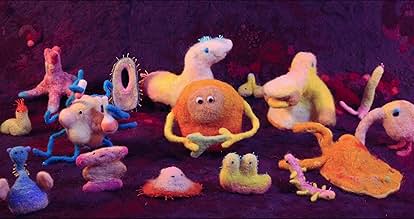Hack Your Health: The Secrets of Your Gut
- 2024
- 1h 19m
An informative yet lighthearted documentary exploring the intricacies of the digestive system and its pivotal role in maintaining overall health and well-being.An informative yet lighthearted documentary exploring the intricacies of the digestive system and its pivotal role in maintaining overall health and well-being.An informative yet lighthearted documentary exploring the intricacies of the digestive system and its pivotal role in maintaining overall health and well-being.























